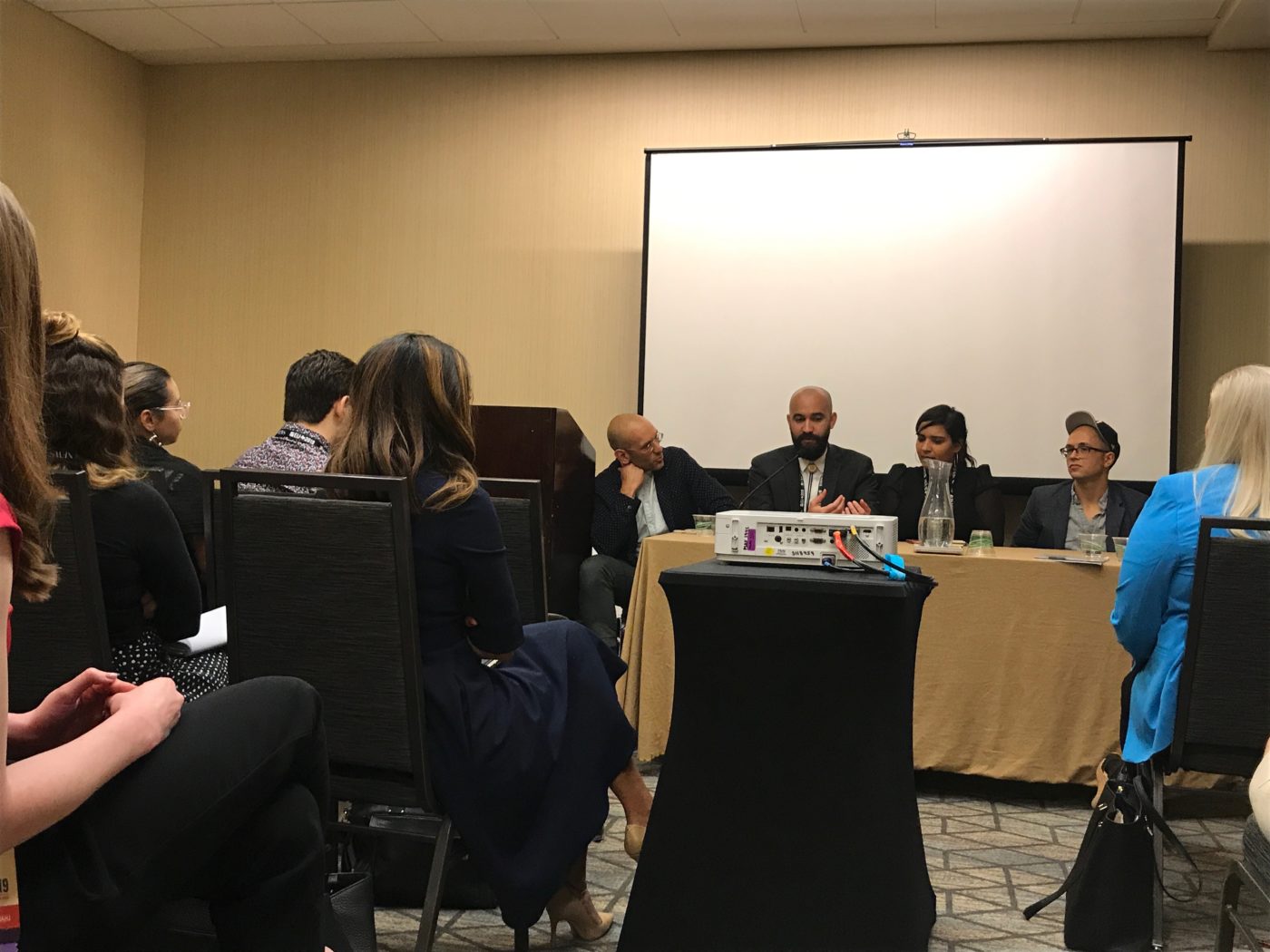Extremism in the Age of Trump
The rising trend of extremism challenges reporters, who have the responsibility to continue to report ethically and accurately.
The Atlantic does not hesitate to identify hateful rhetoric.
“Calling something racist is not subjective,” said Swati Sharma, managing editor.
In a session called “Extremism in the Age of Trump,” Sharma and four Atlantic colleagues discussed their decision to label racist comments made by President Donald Trump as such.
Earlier this year, the AP Stylebook changed the guidelines for covering race.
According to Poynter, the guidelines now empower journalists to use the word “racist” to describe words and actions that qualify as such, but caution against calling someone a racist.
Alexis Madrigal, a staff writer for the Atlantic, said using the term “racist” is important. It acknowledges non-white audiences who experience racism.
Madrigal explained that calling racism by name could contribute to reporter credibility with people of color who face the reality of prejudice.
“That idea of ruining credibility assumes an all white audience,” said Madrigal.
Using the correct term may help to bridge the gap in understanding the historic context.
He explained that statements, actions and policies may have a larger history of racism. However, Madrigal said it is not his place to ever call an individual racist. His concern is centered on the statements or actions and the consequences they have on the public.

Madrigal also had thoughts to convey about covering white supremacists. The Atlantic released the video of Richard Spencer’s nazi salute, which went viral.
“Did we make Richard Spencer more famous than he would have been?” asked Jeffery Goldberg,
The Atlantic editor-in-chief. Madrigal suggests covering only violence and urgent matter rather than giving voice to the political ideologies of these groups.
He warns members of the media to beware of manipulation.
Extremists can be media savvy. “Journalists covering these groups need to understand that the people they’re covering know what they want,” Madrigal said.

